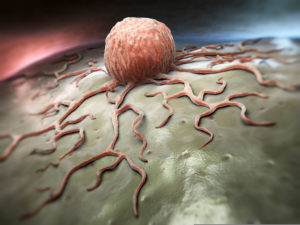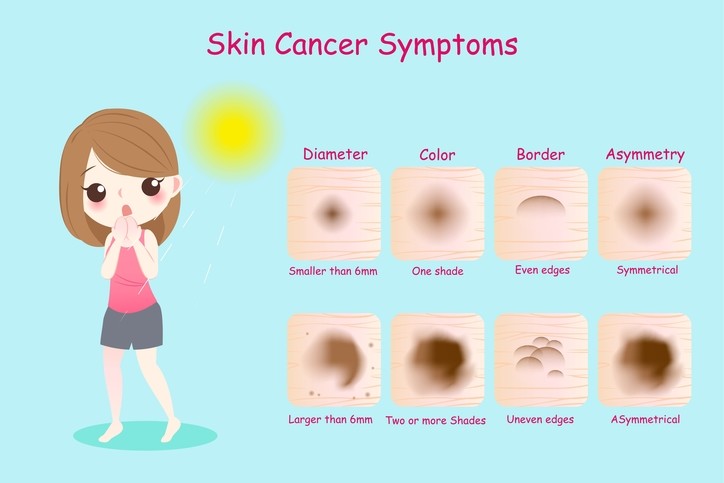Home » Skin Cancer and Melanoma » Page 2
Skin Cancer and Melanoma

About Skin Cancer & Melanoma
Skin Cancer and Melanoma is currently the most common type of cancer. Its incidence has strongly risen over the past few decades, now accounting for one in every three newly diagnosed cases of cancer worldwide.
The disease appears when cancerous cells develop on the skin and in the various layers of skin tissue.
To improve patients’ chances, the American Society for Clinical Oncology, ASCO, that includes various specialists in its panel, such as oncologists and radiologists among others, guides oncologists to inform skin cancer patients in all topics related to clinical trials in every stage of their disease.
The National Cancer Institute, NCI, of the United States, stresses that for skin cancer patients, the preferred treatment option is to join one of the many clinical trials around the world and thus increase the chances of success over the standard protocols.
Types of Skin Cancer and Melanoma
The three main types of skin cancer are
Skin Cancer Melanoma
Sourced in the melanocytes, cells which produce skin pigment known as melanin.
Melanoma may also begin in other pigment tissue such as the eye, or intestines. Melanoma is the rarest but more aggressive of the three types. It tends to spread to adjacent tissues, and can metastasize in the brain, lungs, bones, liver, and stomach.
Skin Cancer Squamous Cell Carcinoma
Begins in the squamous cells, flat cells with the appearance of fish scales and found on the external layer of skin, or epidermis. It develops slowly and is easy to treat if diagnosed early.
Late diagnosis, however, may lead to its spread to adjacent membranes, lymph nodes or bones, making treatment more difficult.
Basal Cell Carcinoma
Sourced in the skin’s basal cells found in the layer beneath squamous cells, this type of cancer is considered not aggressive since generally it does not metastasize.
Causes of Skin Cancer and Melanoma
The main cause of skin cancer is exposure to the sun’s rays, particularly ultra-violet (UV) rays. Light toned skin, a tendency to moles and freckles, a family history of skin cancer, and older age, constitute risk factors for skin cancer.
The primary recommendation for people belonging to these categories is to avoid direct exposure to the sun and be sure to use sun protection, such as sunscreen lotions, sunglasses, and clothes with full body cover.
Symptoms of Skin Cancer and Melanoma
Most cases of skin cancer do not cause any symptoms unless the disease has already spread or metastasized. Some patients, however, may suffer from skin cancer symptoms in much earlier stages of its development.

Treatment Goals
The main objective of treatment is to slow down and control the disease’s progress and help reduce symptoms.
For metastatic melanoma stage 4 the primary objective is to prolong life and improve patient’s quality of life.
Standard Treatments
A number of therapies are possible, and many patients shall receive more than one type of therapy
Surgical Tumor Removal
In cases of skin cancer which are not diagnosed as melanoma, the option of surgical procedure to remove the mole or tumor will be considered. The purpose is to remove the tumor and the area adjacent to it.
Techniques may include use of laser, burning or freezing the tumor, which will be studied under the microscope to identify and diagnose the type of cancer.
Two main types of treatment may be offered to patients before and after surgery
- Treatment prior to surgery is known as ‘Neoadjuvant’
Usually this stage of treatment will involve chemotherapy and/or radiotherapy intended to reduce the tumor’s size and improve the success of surgery.
- Post-surgery treatment, also known as ‘Adjuvant’
This treatment seeks to cure and prevent the appearance of metastases or recurrence of the tumor.
Melanoma, when metastasized is categorized as stage 4, is considered inoperable.
Radiotherapy
In cases of incomplete excision, high energy radiation may be used to kill the cancerous cells remaining in the area after surgery.
The goal is to slow the growth rate of the remaining cancerous cells.
In cases of full excision, radiotherapy is usually not prescribed.
Chemotherapy
Chemotherapy is a medicated therapy which aims to shrink and erase cancerous cells and allow control over the disease.
Chemotherapy carries serious side effects, while its effectiveness is insufficient.
Chemotherapy’s impact has a range of side effects such as hair loss, loss of appetite, changes to bowel movements, fatigue, infection, hemorrhaging, incontinence, pain, and more.
Examples of treatments for squamous cell carcinoma
- Etopophos® (Etoposide)
- Doxorubicin
- Hycamtin® (Topotecan)
- Adrucil® (Fluorouracil, 5-FU)
- Cisplatin
- Xeloda® (Capecitabine)
Biological Treatments
Drugs which target the ‘Hedgehog’ signaling pathway. These are for patients with Basal cell carcinoma
Medications to counter the BRAF gene mutation
Mutations in the BRAF protein’s gene is common among 50% of melanoma patients and causes cancerous cells to multiply, encouraging the cancer’s development.
A mutation in BRAF appears in various types of cancers.
Drugs for integrated cellular protein, known as BRAF
Drugs for integrated cellular protein, known as MEK
Immunotherapy
Immunotherapy drugs assist the immune system in attacking the tumor. This type of treatment is very different from chemotherapy, for example, which directly attacks the cancerous cells but unfortunately also damages healthy tissues.
The immune system has “immune barriers” which serve to regulate the immune system and prevent it from attacking the body. In cancer these functions are readily activated and as a result, the immune system ceases to attack cancerous cells, enabling the tumor to grow and proliferate in the body.
Barriers known as PD-L1, PD-1 and CTLA-4 are found on T-cells and cancer cells.
Immunotherapy is a revolutionary strategy, and one of the most widely studied worldwide for its application to numerous types of cancer and various stages of the disease’s development. Treatment is generally provided in the form of an intravenous infusion.
Examples of immunotherapy drugs for melanoma patients
Examples of drugs against PD-1 for advanced squamous cell cancer
Advanced Cancer Drugs, Breakthrough Treatments and Clinical Trials from Around the World for Skin Cancer and Melanoma Patients
Facts
- The existing therapies used on stage 4 metastatic cancer are not curative, and this is a source to the need for innovative and effective treatment strategies in order to fight the disease.
- The National Cancer Institute, NCI, highlights the fact that for a certain group of cancer patients, the best treatment option is to join one of the many clinical trials existing worldwide aiming to increase their chances of therapeutic success.
- Currently, every patient will be offered the standard protocols described above. Sometimes the oncologist may suggest integrating these therapies with trials carried out in the institute.
The Opportunity
- Advances in cancer therapies may be found in clinical trials prescribing cutting edge, innovative drugs, some of which have already been recognized by the US Food & Drug Administration, the FDA, as “breakthrough drugs” and require further information to be approved.
- An entire world of clinical trials, Compassionate drugs and advanced new cancer treatments are available worldwide.
- It is important to know and have access to cutting edge cancer treatments that best match the unique medical condition of the patient and increase chances in winning the fight against compared to the standard care offered.
Note to remember!
Not every patient is eligible to enter a specific clinical trial. The eligibility conditions must be fully met and each case is reviewed separately to ensure that the clinical trial matches to the specific cancer patient and vice versa.
References
- https://www.fda.gov/
- https://www.ema.europa.eu/
- https://www.health.gov.il/Pages/HomePage.aspx
- https://www.skincancer.org/skin-cancer-information/melanoma
- https://www.cancer.gov/types/skin cancer
- https://www.cancer.org/
- https://www.cancerresearchuk.org/
Dear Reader,
This information is provided as a source of knowledge and does not constitute a medical consultation. For professional medical advice, see your attending physician. Information regarding drugs and commercial names belongs to the pharmaceutical companies
To check if our service suits your case
We need to talk

Improve therapeutic outcomes, prolong life and quality of life, are our main business.
We support access to and expand cancer treatments beyond the standard of care, with the most advanced and innovative treatment options in the world, personally matching the individual cancer patient’s medical condition and with the support of top tier oncologists.
Article categories
קטגוריות המאמרים
Popular topics



